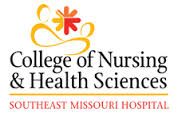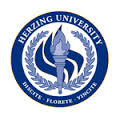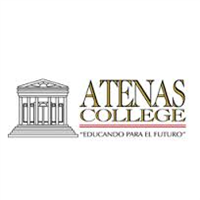What do they do?
Assist in operations, under the supervision of surgeons. May, in accordance with state laws, help surgeons to make incisions and close surgical sites, manipulate or remove tissues, implant surgical devices or drains, suction the surgical site, place catheters, clamp or cauterize vessels or tissue, and apply dressings to surgical site.
Also known as:
Certified First Assistant (CFA), Certified Registered Nurse First Assistant (CRNFA), Certified Surgical Assistant (CSA), Certified Surgical First Assistant (CSFA), Certified Surgical Technician, Gastrointestinal Technician (GI Technician), Operating Room Technician, Registered Nurse First Assistant (RNFA), Surgical Assistant, Surgical First Assistant, Surgical Scrub Technician (Surgical Scrub Tech), Surgical Technician (Surgical Tech)
-
1.4%
Change
Ranks #30 in job growth rate50Job Openings
Ranks #10 in net job growth
Looking for colleges that offer a specific major? Use the College Match Tool to find your best-matched schools and discover your estimated Net Price!
- Master's degree (36%)
- Bachelor's degree (31%)
- Some college, no degree (12%)
- Associate's degree (9%)
- High school diploma equivalent (6%)
- Doctorate or Professional Degree (4%)
- Less than high school diploma (<1%)
People in this career often have these skills:
- Active Listening - Giving full attention to what other people are saying, taking time to understand the points being made, asking questions as appropriate, and not interrupting at inappropriate times.
- Speaking - Talking to others to convey information effectively.
- Reading Comprehension - Understanding written sentences and paragraphs in work-related documents.
- Critical Thinking - Using logic and reasoning to identify the strengths and weaknesses of alternative solutions, conclusions, or approaches to problems.
- Monitoring - Monitoring/Assessing performance of yourself, other individuals, or organizations to make improvements or take corrective action.
- Coordination - Adjusting actions in relation to others' actions.
- Service Orientation - Actively looking for ways to help people.
People in this career often know a lot about:
- Medicine and Dentistry - Knowledge of the information and techniques needed to diagnose and treat human injuries, diseases, and deformities. This includes symptoms, treatment alternatives, drug properties and interactions, and preventive health-care measures.
- Customer and Personal Service - Knowledge of principles and processes for providing customer and personal services. This includes customer needs assessment, meeting quality standards for services, and evaluation of customer satisfaction.
- English Language - Knowledge of the structure and content of the English language including the meaning and spelling of words, rules of composition, and grammar.
- Biology - Knowledge of plant and animal organisms, their tissues, cells, functions, interdependencies, and interactions with each other and the environment.
- Education and Training - Knowledge of principles and methods for curriculum and training design, teaching and instruction for individuals and groups, and the measurement of training effects.
People in this career often have talent in:
- Oral Comprehension - The ability to listen to and understand information and ideas presented through spoken words and sentences.
- Arm-Hand Steadiness - The ability to keep your hand and arm steady while moving your arm or while holding your arm and hand in one position.
- Finger Dexterity - The ability to make precisely coordinated movements of the fingers of one or both hands to grasp, manipulate, or assemble very small objects.
- Near Vision - The ability to see details at close range (within a few feet of the observer).
- Oral Expression - The ability to communicate information and ideas in speaking so others will understand.
- Problem Sensitivity - The ability to tell when something is wrong or is likely to go wrong. It does not involve solving the problem, only recognizing that there is a problem.
- Speech Clarity - The ability to speak clearly so others can understand you.
- Written Comprehension - The ability to read and understand information and ideas presented in writing.
- Visual Color Discrimination - The ability to match or detect differences between colors, including shades of color and brightness.
- Speech Recognition - The ability to identify and understand the speech of another person.
- Information Ordering - The ability to arrange things or actions in a certain order or pattern according to a specific rule or set of rules (e.g., patterns of numbers, letters, words, pictures, mathematical operations).
- Control Precision - The ability to quickly and repeatedly adjust the controls of a machine or a vehicle to exact positions.
- Deductive Reasoning - The ability to apply general rules to specific problems to produce answers that make sense.
- Inductive Reasoning - The ability to combine pieces of information to form general rules or conclusions (includes finding a relationship among seemingly unrelated events).
- Selective Attention - The ability to concentrate on a task over a period of time without being distracted.
- Manual Dexterity - The ability to quickly move your hand, your hand together with your arm, or your two hands to grasp, manipulate, or assemble objects.
- Perceptual Speed - The ability to quickly and accurately compare similarities and differences among sets of letters, numbers, objects, pictures, or patterns. The things to be compared may be presented at the same time or one after the other. This ability also includes comparing a presented object with a remembered object.
- Multilimb Coordination - The ability to coordinate two or more limbs (for example, two arms, two legs, or one leg and one arm) while sitting, standing, or lying down. It does not involve performing the activities while the whole body is in motion.
People in this career often do these activities:
- Verify accuracy of patient information.
- Maintain sterile operative fields.
- Protect patients or staff members using safety equipment.
- Position patients for treatment or examination.
- Operate diagnostic or therapeutic medical instruments or equipment.
- Apply bandages, dressings, or splints.
- Treat acute illnesses, infections, or injuries.
- Operate on patients to treat conditions.
- Collaborate with healthcare professionals to plan or provide treatment.
- Maintain inventory of medical supplies or equipment.
- Implement advanced life support techniques.
- Examine medical instruments or equipment to ensure proper operation.
- Sterilize medical equipment or instruments.
- Assist healthcare practitioners during surgery.
- Monitor patient conditions during treatments, procedures, or activities.
- Prepare patients physically for medical procedures.
- Prepare medical supplies or equipment for use.
- Move patients to or from treatment areas.
- Administer anesthetics or sedatives to control pain.
- Administer intravenous medications.
- Administer basic health care or medical treatments.
- Administer blood or other fluids intravenously.
This page includes data from:

 Occupation statistics: USDOL U.S. Bureau of Labor Statistics Occupational Employment Statistics
Occupation statistics: USDOL U.S. Bureau of Labor Statistics Occupational Employment Statistics












